The National Association of Subrogation Professionals (NASP) published subrogation attorney Mark Demian’s article, “Tales from the Kids Table: Overcoming Impediments When Asserting Subrogation” in their Fall 2016 issue of The Subrogator.
The subrogation process is riddled with inherent challenges, one of which is working with the insureds’ counsel. How does the shadow-like nature of the insured-subrogee relationship affect the insurer’s rights in a subrogation lawsuit? And how can you effectively work with an insured’s counsel who may not be cooperative?
Because subrogation law is a niche within the already-niche insurance law, the subrogating carrier and their counsel are often misunderstood by the other parties in a case – judges, jurors, even their insured’s counsel. But an insurer’s right to recovering from a claim is just as important as the insured recovering from their loss; insurance companies should protect their interests by retaining a subrogation law firm that actively participates in litigation.
Demian’s article recites the tale of an actual case that went to jury trial, and the many challenges to subrogation recovery confronted from the beginning of the case, throughout the trial, and appeal:
Fuel Delivery Disaster: A Case Study on Utility & Property Subrogation
In this case, a fuel delivery company completed a routine delivery to a home. The problem was that the homeowner had removed the fuel tank from their house, but hadn’t told the fuel company. This resulted in 600 gallons of diesel fuel being poured into the basement, making the home uninhabitable and resulting in a large claim by the insureds.
Initially, the insureds sued Mark’s client for coverage. The client settled with the insured. The insured then sued the fuel delivery company as well, to which the fuel company defended the fact that they were not notified and the fuel gauge was not locked. Facing the loss of a huge payout, Mark’s client then pursued the fuel company for subrogation recovery via a cross claim. Here, the impediments begin:
Impediment 1: Pressure from Insured to Drop Claim
In this case, the insured’s counsel wanted it both ways. The insured had already sued Mark’s client. They wanted the claim presented clearly to the jury so the jury would know the extent of the damages. But they also did not want the jury to know they had already received a settlement payout.
Insured’s counsel tried to persuade Mark to drop the claim against the fuel company in return for a small payout. Mark, due to the adversarial nature of the insured’s treatment of the client, flatly refused, moving forward with the cross claim.
Impediment 2: Teammates Are Actually Adversaries
The contentions with the insured’s counsel continued. They needed Mark and his claims specialists to present the claim and have the jury understand the matter, but they also clearly did not want them around. They also did not want the jury to know their client had already received a large settlement.
Unfortunately, this is not a special circumstance, as many judges and lawyers do not like having subrogating counsel involved in a trial because they are afraid the jury will become confused and it will affect their client’s recovery.
Impediment 3: Getting Equal Rights in Jury Selection
During the jury selection process, Mark was often derided for being there at all. If his client and insured were technically on the same side, why would subrogating counsel have problems with jury selection done by the insured’s counsel? Mark had to educate the judge and other parties’ counsel on why a carrier has different wants/needs from a jury than does an individual. He was then allowed to present separate challenges from the insured’s counsel.
Impediment 4: Getting Equal Representation in Deliberations
More difficulties resulted as the trial closed, as insured’s counsel put up a fight when Mark wanted his client’s interested represented in the jury instructions and verdict forms. Insured’s counsel wanted the jury to award in a lump sum. This would make it easier for them, post-judgment, to whittle down Mark’s client’s subrogation lien. Mark said, no – the jury should decide his client’s awards vs the insured’s. His verdict forms were accepted by the court.
The Last Impediment: Protecting the Client’s Right to Recovery
In this interesting case of adversarial litigation teammates, insured’s counsel was not done trying to garner part of Mark’s client’s winnings for himself. When the fuel company appealed the judgment, their issues rested with the insured’s winnings, not the carrier’s.
Insured’s counsel approached Mark, telling him to be prepared to compromise on the subrogation claim. But Mark knew better – his client’s awards were separate, and insured’s counsel was clearly uninterested in working in good faith with both the insured’s and carrier’s interests equally in mind.
In the end, Mark managed to negotiate with the fuel company separately from insured’s counsel, and brought his client’s case to an end with a settlement both parties felt good about. When insured’s counsel found out, he pursued Mark for a $50,000 fee for his “litigation services” during the case. Mark flatly refused this ridiculous request, and was threatened with legal action that never came.
The moral of this story, Mark says, is that staying actively engaged in a subrogation claim is the most effective way to ensure you are protecting your client’s interests to the best measure. In a difficult legal field like insurance subrogation, you never know who is your friend and who is your enemy. As a subrogation attorney, it is your job to advocate for your client’s right to recovery from start to finish.For more details, read Mark’s article. And for more informational resources on subrogation and topics in insurance law, visit Rathbone Group’s podcast library and YouTube channel for On Subrogation, where our attorneys break down complicated subrogation subjects into digestible discussions.
